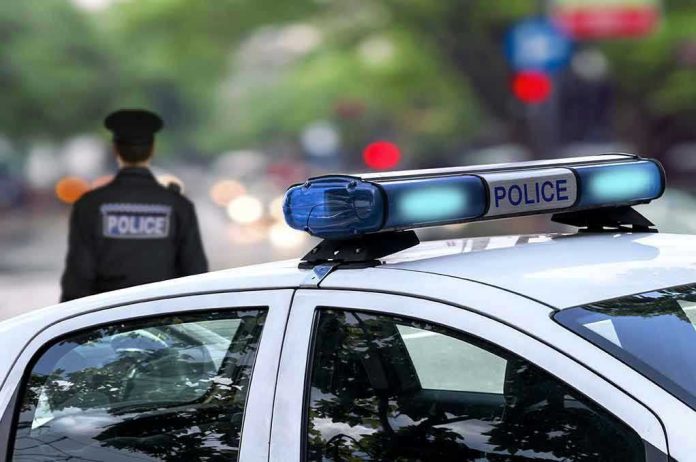
A New Jersey police sergeant skipped responding to a double murder call in favor of pizza and an ATM stop, leaving a community to question: when those sworn to protect the public choose personal errands over duty, what are the real costs?
Story Snapshot
- Sergeant Kevin Bollaro charged after ignoring 911 calls about gunshots and screams, later found to be a double homicide.
- Evidence from GPS and surveillance reveals he visited an ATM and a pizzeria during the emergency.
- He filed a report with false details, triggering criminal charges and suspension.
- Case spotlights failures in police response, accountability, and the pivotal role of surveillance in uncovering the truth.
Pizza, an ATM, and a Double Murder: The Unfolding of a Failed Emergency Response
On August 1, 2025, in the quiet suburb of Pittstown, New Jersey, multiple frantic 911 calls flooded dispatch. Gunshots echoed. Screams pierced the evening. Yet the officer in charge, Sergeant Kevin Bollaro, faced with a clear and urgent crisis, chose to drive away. GPS and surveillance footage later showed his route—first to an ATM, then to Duke’s Pizzeria, where he lingered for nearly an hour. The sense of duty expected from officers was, in this case, replaced by personal errands, even as two lives slipped away just miles from his post.
What makes this more than a story of individual failure is the system that allowed it. The next day, Lauren Semanchik and Tyler Webb were found dead, victims of homicide perpetrated by New Jersey State Police Lieutenant Ricardo Santos, who would subsequently take his own life. The investigation didn’t stop at the crime scene. Prosecutors pieced together the timeline using GPS data and surveillance cameras, reconstructing the sergeant’s movements and exposing a web of neglect and deception.
The Anatomy of Police Negligence and Its Ripple Effects
The Franklin Township Police Department, once a symbol of order in a low-crime community, now faces a crisis of confidence. Bollaro’s decision didn’t just represent a missed opportunity—it became the focal point for broader questions about accountability. Filing a report with falsehoods, he claimed to have conducted a thorough investigation. The evidence, however, painted a starkly different picture. The community watched in shock as the details unfolded: a double homicide unaddressed, a sworn officer’s priorities laid bare, and a department forced into scrutiny.
Hunterdon County Prosecutor Renee Robeson leads the charge for accountability, pushing forward with official misconduct and tampering charges. The case’s central evidence—GPS pings and security footage—demonstrates how technology now holds officers to higher standards, making it harder for lapses and lies to go unnoticed. The legal battle is set: Bollaro’s lawyer contends his actions did not affect the tragic outcome, while prosecutors argue that duty disregarded is justice denied.
Trust on the Line: Community Fallout and Calls for Reform
The reverberations stretch far beyond the crime tape. Franklin Township residents, long accustomed to feeling safe, now grapple with distrust and anger. Public outrage isn’t just about one officer’s choices; it’s about the system that failed to ensure swift action in a moment of crisis. Bollaro stands suspended, the department faces internal review, and the families of Lauren Semanchik and Tyler Webb mourn with the added burden of what-ifs: what if the call had been answered? What if protocol had prevailed over personal convenience?
Legal and law enforcement experts emphasize that rapid, unbiased response to emergency calls is not just best practice—it’s the backbone of public safety. Falsifying official records, as alleged in this case, undermines the thin blue line that is meant to protect both officers and citizens. The scandal now threatens to prompt broader reforms, with the Franklin Township Police Department likely the first of many to reconsider oversight, emergency protocols, and the consequences for those who put self before service.









